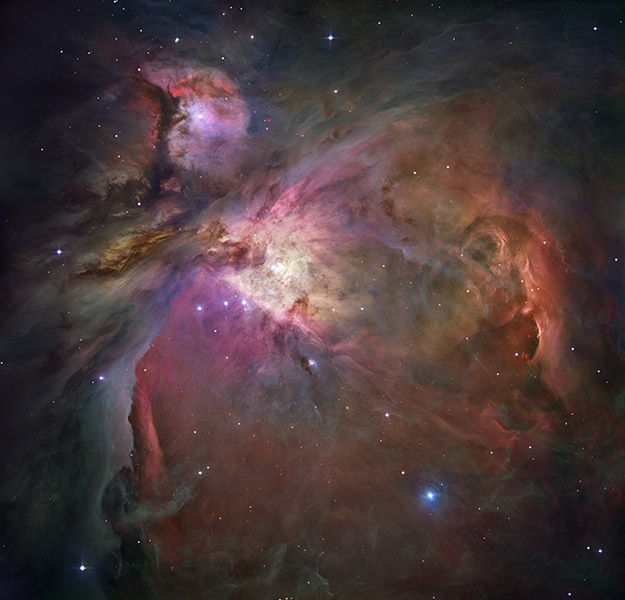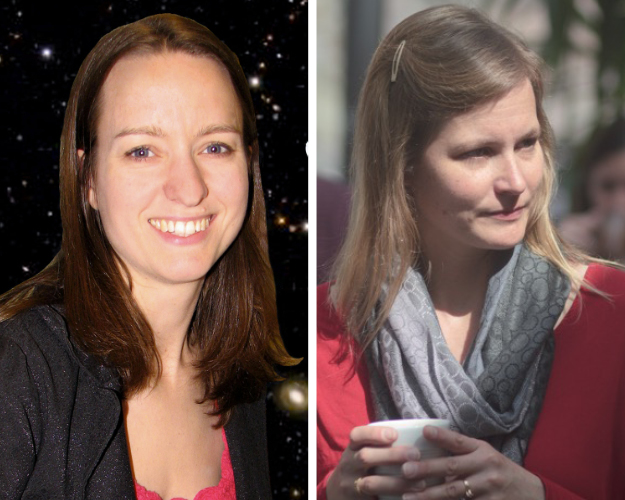Canada’s top astronomers will gather in Hamilton for national conference

The beautiful Orion Nebula, as captured by the Hubble Space Telescope in 2006. More than 250 astronomical researchers and graduate students from across Canada will visit Hamilton later this month for the Canadian Astronomical Society conference. This year's event will be hosted by McMaster and held at the Sheraton Hotel Hamilton.
The mysterious allure of the night sky compels them to look up.
The desire to know more compels them to look to each other.
This month, McMaster will host some of the brightest stars in academia for the Canadian Astronomical Society conference (CASCA 2015).
The four-day affair will take place at the Sheraton Hotel Hamilton May 24-27.
More than 250 researchers, teachers and graduate students from coast to coast are expected to attend the conference, which will offer a wide range of lectures, informational showcases, group discussions and social activities.
“McMaster is home to one of the strongest astro groups in Canada,” says Laura Parker, associate professor in the Department of Physics & Astronomy and co-organizer of CASCA 2015, along with McMaster professor Alison Sills.
“This conference is a fantastic way for us to highlight our research endeavours, and welcome the rest of the country to our community.”
Rob Baker, dean of McMaster’s Faculty of Science, will formally open the conference with a tribute to professor emeritus William Harris.
Harris recently gifted $400,000 to establish the William & Caroline Herschel Fund at the University, which will support graduate scholarships and post-doctoral fellowships in astronomy.
Seven invited speakers from across North America will anchor the conference’s main program.
On Sunday, May 24, Eric Feigelson, director of the Center for Astrostatistics at Penn State University, will host a day-long graduate student workshop with a general focus on statistics in astronomy.
Feigelson is co-author of Modern Statistical Methods for Astronomy: With R Applications, and an expert in X-ray studies of star formation and cross-disciplinary astrostatistics.
The graduate session will be followed by three days of group seminars and guest lectures featuring experts from the University of Chicago, University of Victoria, University of Waterloo, University of Toronto and Rutgers University.
The invited speakers will tackle a number of advanced topics, including: finding and tracking supermassive black holes, studying the impending merger of several nearby galaxies and extracting valuable astronomical information from large and complex data sets.
On Monday evening, University of Toronto researcher Roberto Abraham will deliver a free public lecture at 8 p.m.
The Helen Sawyer Hogg Lecture will offer a general introduction to the “ghostly world” of stellar halos, dwarf galaxies and supernova light echoes. Abraham will also discuss his use of the multi-lens Dragonfly telescope while hunting for ultra-faint celestial objects.
“Roberto is a fantastic speaker, and he’s extremely engaging,” says Parker. “Those with an interest in innovative, affordable technology and deep space exploration will not want to miss this.”
Members of the greater Hamilton community are welcome to attend the free Helen Sawyer Hogg Lecture at the Sheraton Hamilton Hotel.
Laura Parker (left) and Alison Sills from McMaster’s Department of Physics & Astronomy, co-organizers of CASCA 2015.


